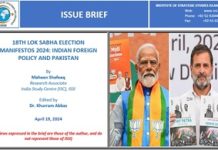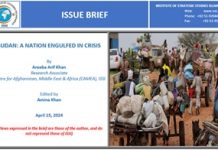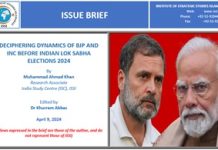Multiple variants of COVID-19 are circulating around the world including “delta variant,” initially detected in India. It has been termed as delta for ease of communication and non-stigmatized labeling. During a news conference in Geneva in mid-June 2021, Dr. Soumaya Swaminath, World Health Organization’s Chief Scientist said that the delta variant is becoming the dominant strain of the virus because of its “significantly increased transmissibility.” [1] On June 22, 2021 India crossed the mark of 30 million cases of Covid-19 in the country.[2] The second wave of the virus brought with it disastrous ramifications for India. Now, the experts are warning against a third wave which can turn out to be a harbinger of grave consequences. This raises serious concerns about the overall spectrum of health security in India.
With the passage of time, health security has become an important component of national security. This pandemic has made countries across the globe realize that securitizing health is an inevitable feature for safeguarding their economic interests in future. India, on the other hand has been evidently late in such a realization for it wasted a lot of time in discussion with the WHO that whether delta variant should be termed as a variant of concern or not. A variant of concern is one with an evidential basis for increased transmissibility, severe diseases leading to hospitalization, reduced effectiveness of treatment or vaccines, and greater detection failure.[3] On the other hand, now India has declared “delta plus” as a variant of concern without substantial data to support it. Had this measure been taken at the onset of the second wave as well, it would have allowed the BJP’s government to contain the virus in the beginning.















